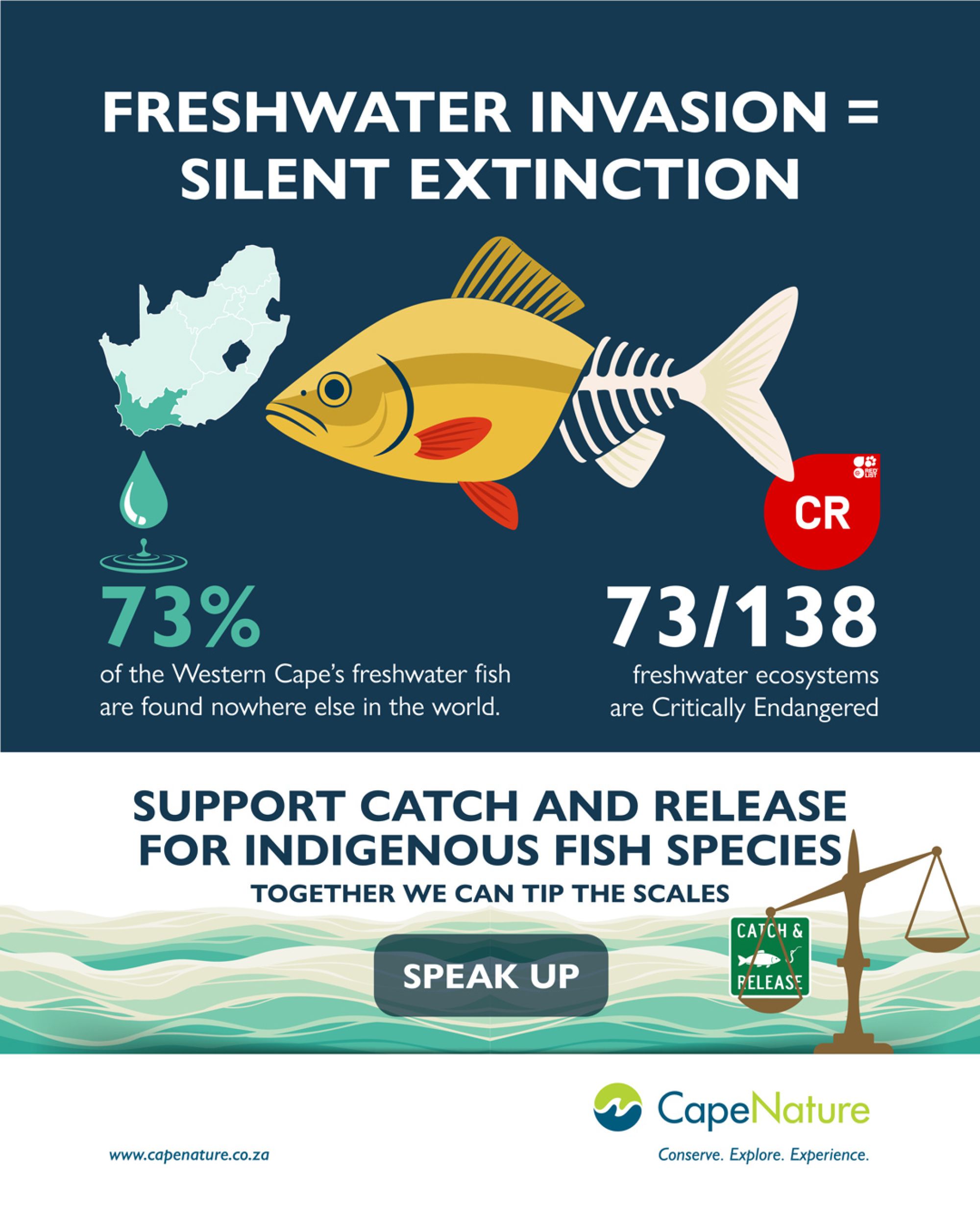
Catch and release helps to conserve the Western Cape’s indigenous fish
Freshwater ecosystems across the Western Cape are rich in biodiversity, supporting a variety of indigenous fish. However, these species are increasingly threatened by the spread of invasive alien fish species, that prey on indigenous species and compete with them for food, space, and breeding grounds. These subtle shifts in ecological balance are often difficult to detect, but they have lasting consequences for the long-term health of freshwater ecosystems.
Currently, 24 of the province’s 35 freshwater fish species are listed as Threatened and 73% of the Western Cape’s freshwater fish are found nowhere else in the world. This high level of endemism makes local conservation efforts especially important. At the same time, 73 of 138 freshwater ecosystems in the Province have been classified as Critically Endangered, highlighting the need for science-based solutions to protect these habitats.
To support the long-term health of these fragile systems, CapeNature is promoting catch and release fishing practices of indigenous fish species, and removal of invasive fish species as a practical and immediate way for recreational anglers to contribute to conservation.
We want to empower communities, anglers, and visitors to become environmental stewards for our indigenous fish species. Practicing responsible catch and release or sometimes catch and remove for alien invasive species helps to sustain the biodiversity and ecological balance of our freshwater systems.

A recent survey conducted in the Boland Mountain Complex, which includes protected areas like Jonkershoek, Hottentots-Holland, Hawequas and Theewaterskloof, found that over half the surveyed river sites were in “Good” or “Very Good” ecological condition. This is encouraging, but the presence of invasive fish at some sites remains a challenge for the survival of certain indigenous species.
The Endangered giant redfin (Pseudobarbus skeltoni) was confirmed for two of the three known populations but remains under pressure due to the presence of invasive fish.
The catch and release approach helps reduce fishing pressure on indigenous fish populations, especially those that are already vulnerable or have limited ranges. When done correctly, it gives fish a chance to recover, breed, and contribute to the resilience of their ecosystems.
CapeNature is continuing to monitor river health through biodiversity surveys and is using the data to guide conservation action. Simultaneously, the Entity is encouraging behavioural change among fishing communities, outdoor enthusiasts, and local stakeholders by broadening the scale and scope of different public awareness efforts. These initiatives and their progress are reflected in resources such as the 2025 State of Conservation Report.
The Entity encourages all recreational anglers to familiarise themselves with indigenous species, use barbless hooks, minimise handling, and return fish to the water gently. These small actions can make a big difference in conserving the province’s unique freshwater biodiversity. By combining science, community awareness and practical action, we’re building long-term capacity to protect our freshwater fish species and the systems where they play critical roles.




